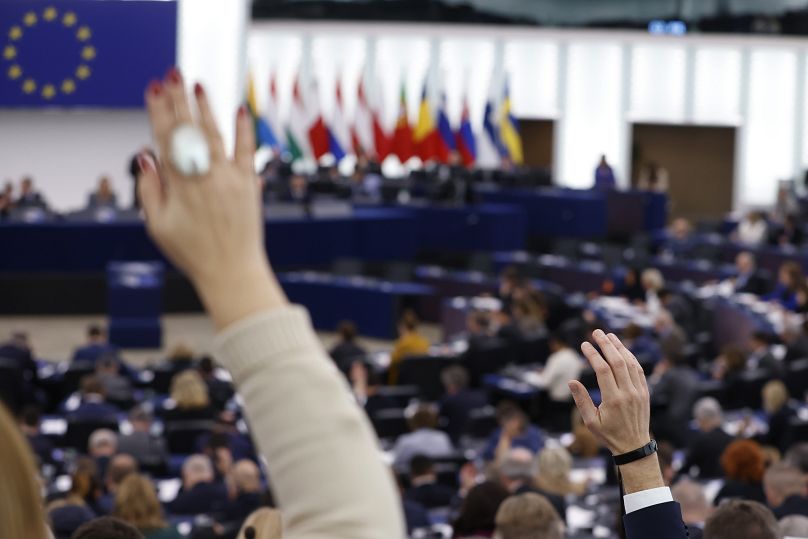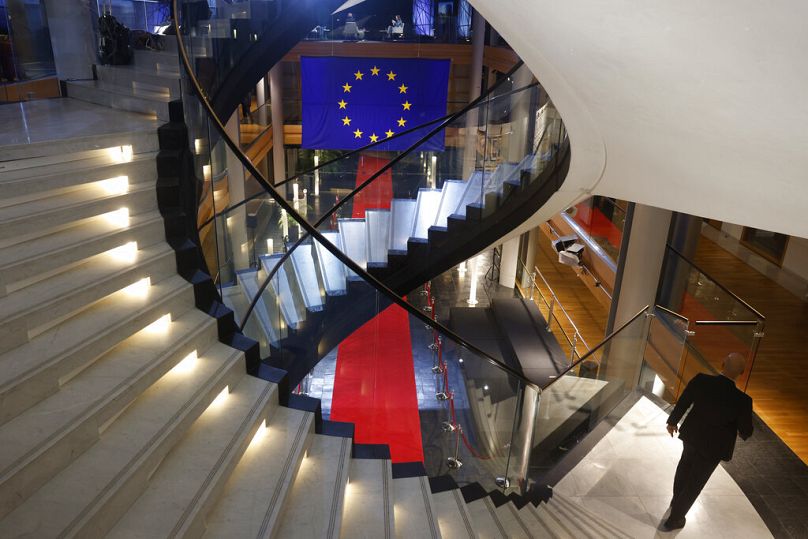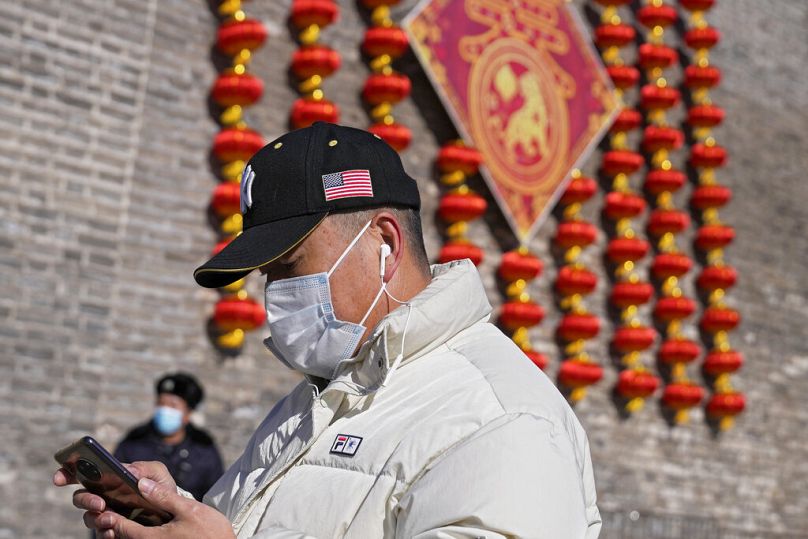The ongoing European Parliament corruption scandal is being used by some to launch a witch-hunt against civil society and NGOs. This is only fuelling the already worrying crackdown on critical voices that hold governments to account, Raffaella Bolini and Jean-Marc Roirant write.
More than thirty years after the fall of the Iron Curtain, Europe is facing up to the harsh fact that democracy is not a given.
Tackling democratic backsliding appears high on the EU agenda.
It took centre stage during European Commission President Ursula von der Leyen’s State of the Union address.
Just last week, the European Commission launched a consultation on its upcoming Defence of Democracy package.
But the EU is missing the mark when it comes to dealing with the root causes of democratic backsliding.
As the response to the European Parliament's corruption scandal shows, the EU is once again narrowing the issue down to foreign interference instead of looking into what’s going on at home.
What is weakening democracy?
Every day, civil society and grassroots movements bear witness to how the trust in democracy and its institutions is threatened from within.
People evaluate democracy based on the ability of government policies to address their needs, concerns and hopes for the future.
For many people in the EU today, facing poverty, exclusion and discrimination, the system is simply not delivering, leaving them forced to compete for rights and dignity.
By neglecting these grievances, politicians pave the way for anti-democratic forces to widen divisions across nationality, ethnicity, religion, gender identity, and sexuality.
They do so by promising “good patriots” that they would keep “outsiders” at a safe distance, implying that some are more entitled than others to enjoy human rights and dignity.
For this reason, strengthening democracy means, first and foremost, addressing these challenges from within.
The EU should prioritise policies for internal cohesion and resilience, equality, freedom and participation, values that are at the core of civil society’s daily actions, in line with Articles 2, 3 and 11 of the EU treaties and the Charter on Fundamental Rights.
Corruption scandal: shifting blame onto civil society
For a while now, the EU institutions appear to be more focused on foreign interference than on challenges closer to home.
This is demonstrated in the ongoing European Parliament corruption scandal, which is being used by some to launch a witch-hunt against civil society and NGOs.
During a debate in the European Parliament, the Chair of the budgetary control committee labelled civil society as potential “enemies of our democracies,” and called for an “EU equivalent to the US Foreign Agents Registration Act” to increase control and transparency.
Let’s set the record straight: this is a scandal of public integrity and corruption involving current and former MEPs and their assistants, some of whom allegedly abused their leadership power in two organisations to serve criminal purposes.
Shifting the blame onto civil society and NGOs as a sector seems a convenient ploy to divert attention, but it does not serve the purpose of defending democracy.
It rather contributes to further restrictions on already threatened civic space, as documented by the Rule of Law annual reports presented by the European Commission.
The narrative and legislation around “foreign agents” has already been capitalised on to target associations and NGOs in countries like Russia, Hungary, Poland, Bulgaria and France.
If the EU continues to adopt this approach, it risks further legitimising this narrative and fuelling the already worrying crackdown on civil society and critical voices that hold governments to account.
Addressing the internal democratic resilience of our societies
To protect democracy, we must protect and not attack civil society.
The EU must not miss the opportunity to do this in its upcoming Defence of Democracy package. While its recent consultation acknowledges the importance of civil society and civic participation, it narrowly focuses on “covert foreign influence”.
It also singles out NGOs as particularly vulnerable to foreign interference, even though NGOs have strict reporting and transparency obligations for the funding they receive.
At the same time, big business and international corporate lobbies observe fewer transparency obligations under the EU Transparency Register and often bypass these rules.
Focusing on foreign interference as the only threat to democracy is counterproductive, as it risks sweeping domestic attacks on democracy under the carpet or even absolving the European governments responsible for them.
Rather, if the EU wants to protect democracy, it must prioritise what contributes to internal democratic resilience.
It must support and protect civil society organisations and human rights defenders and ensure that civic freedoms, including people’s freedom of association, peaceful assembly and expression, are preserved and enhanced.
The state of civil society and the quality of civic freedoms is not only an indicator of the state of democracy but also an element of its critical infrastructure.
Recognition must be rooted at the European level. If there is to be an open and flourishing space for civil society at all levels of the EU, European institutions must lead by example.
Raffaella Bolini and Jean-Marc Roirant are Co-Presidents at the European Civic Forum, a pan-European network that brings together nearly 100 associations and NGOs across 29 European countries.
At Euronews, we believe all views matter. Contact us at view@euronews.com to send pitches or submissions and be part of the conversation.














